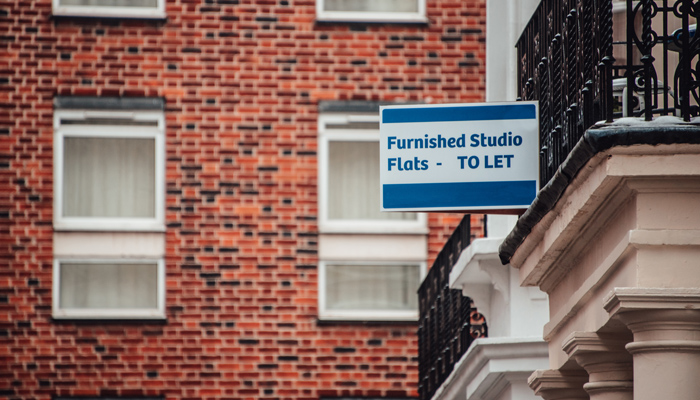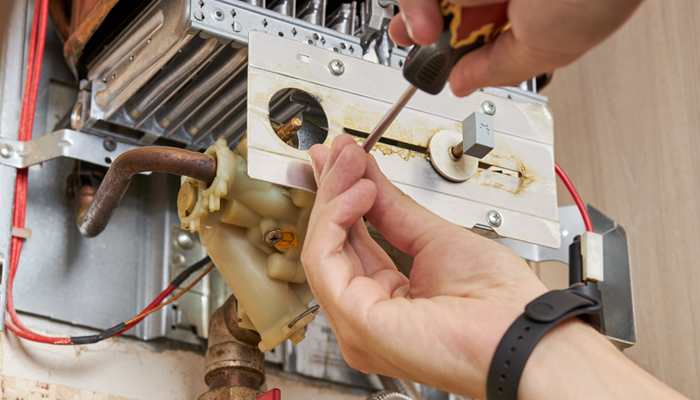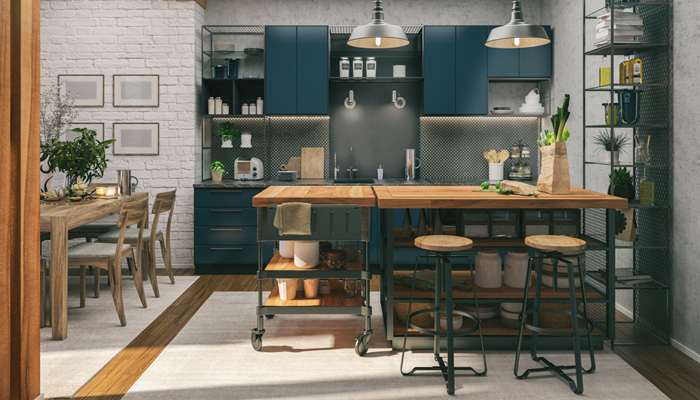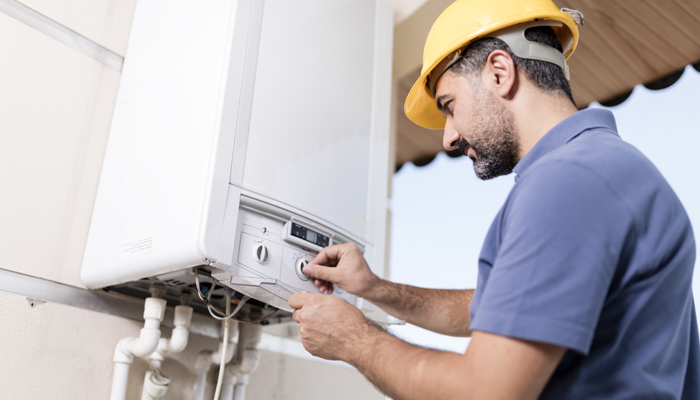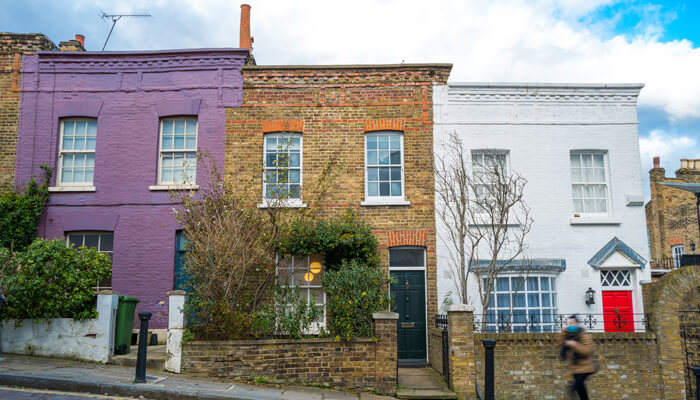Landlord Responsibilities
You're probably familiar with some landlord law. But what about the most important laws of all - health and safety laws? Find out how to stay on the right side of the law and keep your tenants and property safe.
Landlord Gas Safety Certificate
Required by law
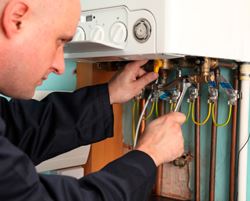
As a landlord, you must:
Check any gas equipment (especially gas boilers) is safely fitted and kept in good working order by a Gas Safe registered engineer. You can find a list of Gas Safe registered engineers on the Gas Safe website. You must also check all appliances and flues yearly and give your tenants a copy of the gas safety check when they move in or within 28 days of the check.
Good to have
A common concern among tenants and home owners alike is carbon monoxide. As a landlord, you can put those concerns to bed by installing a carbon monoxide monitor/detector.
This is especially important if a boiler is in a tenant's room but it’s good practice to install one any way.
It’s also a good idea to leave the details of a gas engineer or emergency number with your tenants. This means they can take action swiftly if there’s a problem and also save you time by getting in contact with the engineers directly.
Energy Performance Certificate
Required by law
You’re required by law to have your property rated on its energy efficiency. However, not all types of property need an Energy Performance Certificate (EPC). Here's a breakdown of the circumstances in which you’ll need an EPC:
- Individual house/dwelling (i.e. a self-contained property with its own kitchen/bathroom facilities) &- one EPC for the dwelling.
- Self-contained flats (i.e. each behind its own front door with its own kitchen/bathroom facilities) - one EPC per flat.
- Bedsits or room lets where there is a shared kitchen, toilet and/or bathroom (e.g. a property where each room has its own tenancy agreement) – No EPC is required.
- Shared flats/houses (e.g. a letting of a whole flat or house to students/young professionals etc. on a single tenancy agreement) - one EPC for the whole house.
- Mixed self-contained and non-self-contained accommodation - one EPC for each self- contained flat/unit but no EPC for the remainder of the property.
- A room in a hall of residence or hostel - no EPC is required.
It really is a good idea to get your properties certified. If you fall on the wrong side of the law, you could find yourself with a £200 fine per property without an EPC.
Good to have
Check the energy efficiency of appliances in the house. Most items such as TVs have to comply with energy efficiency standards any way but it’s best to check. In terms of getting a better EPC standard, think about installing secondary glazing, draft excluders around doors and having your boiler regularly serviced (see gas requirements above). Slightly pricier ways of getting a better rating include cavity wall insulation and loft insulation. Also bear in mind, wooden floors may look lovely but they don’t necessarily keep the heat in very well. Consider laying carpets or at least a runner along corridors.
Landlord Electrical Safety Certificate
Required by law
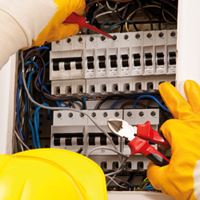
The rules around electrics on rental properties are pretty clear. As a landlord, you are legally required to:
- Check the electrical installation in your property is safe when tenants move in and maintained in a safe condition throughout the duration of the tenancy.
- Conduct a periodic inspection (electrical condition report) of Houses in Multiple Occupation (HMOs) every five years. If your property is not an HMO, you are not legally obliged to do this. However, it’s still a sensible idea to get your property periodically inspected by a registered electrician at least every five years.
- Ensure any appliance provided is safe and has the CE marking (which is the manufacturer’s claim that it meets all the requirements of European law) as a minimum.
Good to have
Though the law says to conduct inspections every five years, it’s good practice to make regular checks on your property and promptly fix any problems raised by your tenants. Regular checks may also help you pre-empt problems. For example, if your tenants are overloading sockets you can advise them on what they can do to stay safe. It’s also a good idea to give your tenants a run-down of the fuse board. This can help tenants isolate the power to a certain part of the property without living in total darkness until the problem is solved.
Landlord Deposit Scheme
Required by law
Landlords must keep tenant's deposits in a government backed tenancy deposit scheme. In rare cases, landlords may accept valuable items such as watches or cars as a deposit however, these cannot be protected by a scheme. There are different tenancy deposit schemes in Scotland and Northern Ireland so if you’re a landlord with properties in those home nations, it’s best to check you’re in line with the law. When your tenants give you their deposit(s) you have 30 days to:
- Put the money into a scheme
- The address of the rented property
- How much deposit you’ve paid
- How the deposit is protected
- The name and contact details of the tenancy deposit protection (TDP) scheme and its dispute resolution service
- Their (or the letting agency’s) name and contact details
- The name and contact details of any third party that’s paid the deposit
- Why they would keep some or all of the deposit
- How to apply to get the deposit back
- What to do if you can’t get hold of the landlord at the end of the tenancy
- What to do if there’s a dispute over the deposit
Good to have
As part of the contact for the house, you should have an inventory list. This means when it’s time to give the deposit back to your tenants you have a record of what’s in the flat and what condition it was in when the tenants moved in.
Landlord Fire Safety Responsibilities
Required by law
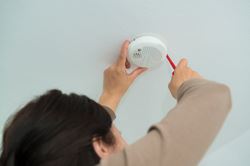
Fire safety is possibly the most important factor in health and safety anywhere and rental properties are no exception. Once again, the law is pretty clear when it comes to what’s required of landlords. As a landlord you must:
- Conduct a fire safety assessment on your property
- Ensure furniture complies with Furniture and Furnishings (Fire Safety) Regulations 1988/1989, 1993 and 2010
- If your property is a home in multiple occupation (HMO), you must provide fire alarms and fire extinguishers
Good to have
Regardless of whether your property is an HMO or not, it’s a good idea to put smoke alarms in your property. As well as a moral obligation to keep your tenants safe, an alarm might help prevent a fire becoming more serious and causing more damage. They might be a bit annoying when you over cook your dinner slightly but one day, you and your tenants might be grateful they were there. Likewise, providing extinguishers and fire blankets can help keep tenants and your property safe. Also make sure you refer to the electrical section above and check your property for risks of electrical fires from overloaded plugs etc.
Staying on the right side of landlord laws
As you can see from the length of this article, there are quite a few things you need to do as a landlord to stay within the law. We strongly recommend you don’t pick and choose which laws you abide by but make sure you do everything we’ve mentioned in this article.
As well as some hefty fines to be imposed on those caught out, it’s in your interest as a landlord to make sure your property is safe for your tenants. The laws are there for a reason and that reason is to protect your property and your tenants.
Sources
- https://www.gov.uk/private-renting/your-landlords-safety-responsibilities
- https://www.electricalsafetyfirst.org.uk/guidance/advice-for-you/landlords/
- https://www.gov.uk/tenancy-deposit-protection/information-landlords-must-give-tenants
- https://www.firesafe.org.uk/furniture-and-furnishings-fire-safety-regulations-19881989-and-1993/
- https://www.gov.uk/private-renting/your-landlords-safety-responsibilities
About the author
 Alison Wild BCom (Hons), MAAT, MATT, Taxation Technician is a highly respected industry professional who has been working with and advising SMEs in areas including tax, pensions, insurance and marketing for over 25 years. She is a member of the Association of Accounting Technicians (AAT) and Association of Tax Technicians (ATT) and also has 20 years' experience as a residential landlord.
Alison Wild BCom (Hons), MAAT, MATT, Taxation Technician is a highly respected industry professional who has been working with and advising SMEs in areas including tax, pensions, insurance and marketing for over 25 years. She is a member of the Association of Accounting Technicians (AAT) and Association of Tax Technicians (ATT) and also has 20 years' experience as a residential landlord.
Date: January 29, 2015
Category: Landlords


